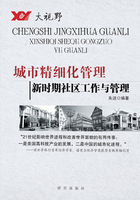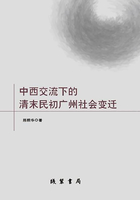In China, household registration institutions are not merely sources of information about population; they provide the fundamental means for administrating the state and people, taxes and labor service levying, setting government-official pay scales.Although household registration has changed it's name and content on a number of occasions in some period of history, there is an underlying continuity in respect to it's basic rules: government sets the household registration, household (provided information about organization, family or individual) forms the basic unit of population and administration, registration contents mainly include all or part of household population, and in some periods of history, it has been the main source of information in respect to land, property, taxes and labor service levying with them, as well as other functions relating to people and households.
In the point of view of institutional economics, the China's household registration institutions is not only a class of demographic institutions in the institutional structure with recording birth, death, marriage, and so on.It always acted with land, taxes and labor service levying, and hierarchy institutions, and conferred special rights and obligations to some individual or group via the household registration institutions; essentially, it can be seen as a kind of institutions arrangement and structure controlling other resources, which via its control to individual and individual's rights (resources capability) .Therefore, the household registration institutions are of key points in respect to individual rights and social control, thus also the household registration institutions change can to some extent be seen as reflecting the logic evolution of individual's rights and social control.
For more than thousands of years, the household registration institutions have been influencing individual's rights and daily life.However, as important and unique institutions, in future generations they will no doubts continue to act in influence China's social change.Thus, the household registration institutions involved individual rights and social control should be explained theoretically, which would guide actions of individuals, groups and countries in the future.Therefore, researches on the change of household registration institutions are absolutely necessary when we review and take lessons from historical experience, solve practical problems now and choose direction for the future.
This paper has made use of institutional economics as the basic theoretical tool, in the perspectives of individual rights and social control, it has taken the household registration institutions as a means of control of individuals and personal rights (resources capacity) have been used to influence and control other more resources into the whole framework of the society institution.The main line of this paper is household registration institutions and its historical changes.In the aspects of institutional requirements, supplies, implementation, costs, and competition etc., the paper has mainly studied and discussed the changes seen in the fields of political and economic institutions, which is in the institutional framework, on land, taxes and labor service levying, hierarchy institutions, and their changes and interactions with the household registration institutions, as well as these influences to individual rights (resources capacity) .Furthermore, its study and discussion include how the actions taken by individual and groups (formed by different individuals) influenced to the institutional framework, especially to the household registration institutions.This study is aimed at enabling better choices of directions in respect to formulating reforms of China's household registration institutions, and as a reference point in helping individuals and the government to make better choices.At meanwhile, by the means of explaining the change of China's household registration institutions, this paper has tested and refined the related theories of institutional economics.
This paper consists of a total of seven chapters, which formed by three parts: theory (Chapter I) , history (Chapter II to VI) , theory and history (Chapter VII) , and what follows is a detailed description of each of these chapters.
Chapter I.Introduction.This chapter discusses the background and significance of the research, the theoretical tool made use of, research methods, related concepts and theories, literary reviews, study concept, frame and new innovative approaches.
Chapter II.The origins of household registration institutions.This chapter discusses the divergences of interests, trading, rights and institutions in a Robinson Crusoe (one-man) economy, based on the rational economic man and scarcity of resources; second, it discusses the processes of cooperation and groups, social differentiating, and social structure forming.It also discusses the roots of control base on institutional non-neutral, individual differences and preference; third, It discusses the control institutions of that early humans group control of its members.
Chapter III.The mode of group controlling.This chapter studies and discusses the start of China used groups as the mode of controlling unit, the differences between different groups in respect to methods of internal control, as well as a series of breakthroughs made in respect to means of group controlling, individual family growth, and finally the end of group controlling mode in the Xia, Shang, and Zhou dynasties.
Chapter IV.The household registration institutions coupling of the institutions of land.First, it studies and discusses the household registration institutions was created to fit in the land system reform and competition between kingdoms in Spring and Autumn period, and the effects on tax, labor service levying institutions and social organization that these changes bought about.It also studies and discusses the kingdoms (especially Qin Dynasty) adjusted and improved the institutions under the pressure of competition, and the Western Han Dynasty inherited and revised the Qin's institutions.The household registration institutions was torn by powerful family, warlords, and separatist regimes from the Eastern Han Dynasty to the Southern Dynasty.The different minority regimes according to different standards divided the institutions between Hu and Han in the Northern Dynasty.The household registration institutions last combined with the land system during Sui and the early Tang periods.
Chapter V.The household registration institutions coupling of the labor service levying institutions.First, it studies and discusses the decoupling and impact bought about by the household registration institutions and the institutions of land in the late Tang Dynasty, as well as the labor service levying household based development of the household registration institutions during the period of the Five Dynasties and Ten Kingdoms ending in the Song Dynasty; second, it studies and discusses the institutions framework under the nationalities and socioeconomic configuration, as well as the development and change of the household Registration institutional in the Liao, Jin and Yuan dynasties; third, it also studies and discusses the household registration institutions coupling again and decoupling of tax and labor service levying institutions in the Ming Dynasty;forth, it studies and discusses the institutional framework under the nationalities and socioeconomic configuration, and the decoupling and impact bought about by the household registration institutions and labor service levying institutions in early Qing Dynasty.
Chapter VI.The way towards to be individual control.First, it studies and discusses the collapse process of Chinese traditional social economy structure and the household registration institutions in the late Qing Dynasty, individual as the control unit began to be incorporated into the control institutions; second, it studies and discusses the household registration institutional was torn by different regimes in the period of the Republic of China, the choice of control unit was in the uncertain between individual and family, and the institutional competitions existed among the Communist Party, the National Party, and other regimes;third, it studies and discusses the traditional institutions were reformed in Republic of China, and the household registration institutions were divided into separate rural and urban institutions, the changes made to left institutions after the reform and the reforms of the urban and rural household registration institutions.
Chapter VII.Conclusions and implications.This chapter provides a summary of the feature, trends and implications about the change of household registration institutions.
The innovations of this paper are: 1.This paper analyses the household registration institutions change using the theory and methods of institutional economics, and selected the research perspective of individual rights and social control.The household registration institutions change in china can be summarized in four stages: origin, group control, household registration control and individual control.Those will provide an idea for the household registration institutions change research;2.This paper is aimed at enabling better choices of directions in respect to formulating reforms of China's household registration institutions, and as a reference point in helping individuals and the government to make better choices, through the investigation of principle, development and change of individual rights and social control in the household registration institutions; 3.This paper were explained the China's household registration institutions changes using the relevant theories of system economics, and tested these theories, on this basis, this paper presents some theoretical correction aiming at the existing problems of the part of these theories.
The deficiencies of the paper are: 1.Because of a lack of greater academic knowledge, too much emphasis is placed on historical processes, the theoretical discussion was not sufficient, as well as abstract and summary; 2.The research was confined to China, without international comparisons about the household registration institutions, individual rights and societal controls;3.Because of the complexity of China's household registration institutions and the length limitation of this paper, some discussion to retain the single evidence, and in this way loose some of its persuasive power.
Keywords: the Household Registration Institutions; Individual Rights;Social Control; Intuitional Change















